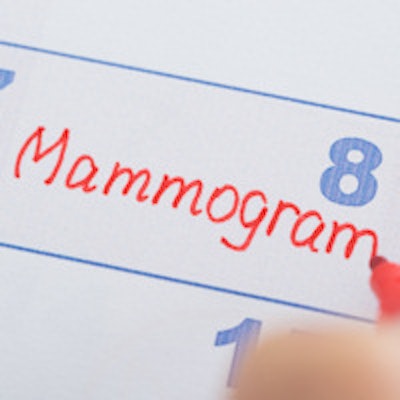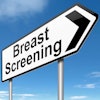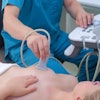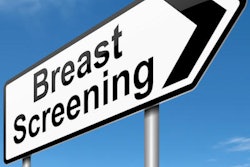
At what age should women begin breast cancer screening? How often should they have it? And what modality works best, when factors such as density and family history are taken into account? These questions and many more continue to be hotly debated, both in the U.S. and around the world.
The debate is prompting clinicians to explore the development of personalized screening -- including researchers at the University of California, who plan to launch a study this spring that will explore whether a tailored approach to breast cancer screening would be as effective as annual mammograms.
The five-year study, called Women Informed to Screen Depending on Measures of Risk (WISDOM), will be supported by a $14.1 million grant from the Patient-Centered Outcomes Research Institute (PCORI). The WISDOM study is a project of the Athena Breast Health Network, founded in 2009 by Dr. Laura Esserman, director of the Carol Franc Buck Breast Care Center at the University of California, San Francisco (UCSF).
Athena's purpose is to streamline breast cancer clinical care and research across the five University of California medical campuses (Davis, Irvine, Los Angeles, San Diego, and San Francisco) and the campus of a new affiliate, Sanford Health, a network based in the Dakotas. The program has established a standard-of-care protocol for mammography screening, which includes an electronic questionnaire women fill out when they make an appointment that is used to assess their breast cancer risk. All women who fill out the initial questionnaire are given the option to participate in further research -- in this case, the WISDOM project.
There are now 102,000 women who have come through the Athena program for mammograms -- a good source of potential participants for the study, Athena Program Manager Allison Stover Fiscalini told AuntMinnie.com.
"We're conducting a modern-era screening trial that incorporates the best of our knowledge today about breast cancer risk in order to understand how we can optimize screening as a public good and adapt and help each individual person," she said. "We want to determine whether our personalized approach will lead to more of the highest-risk women deciding to use strategies that can prevent breast cancer."
Wisdom needed
The WISDOM trial will screen 100,000 women between the ages of 40 and 74 who have never had breast cancer or ductal carcinoma in situ (DCIS). Study participants will be randomized to either a risk-based or annual screening arm; those in the risk-based group will also provide a saliva sample so they can be tested for genetic factors that may contribute to their breast cancer risk.
The frequency of the risk-based group's breast cancer screening will be determined by information from their initial mammogram, a questionnaire about their family history, and their genetic testing -- although none of the women in this group will be screened less than the minimum recommendations. Finally, women will be tracked through the five years of the study and beyond, even if they leave UC/Athena care, Fiscalini said.
"WISDOM will test a new approach to screening that is not a one-size-fits-all protocol based on age," Fiscalini said.
Getting smarter
Why WISDOM? Because breast cancer isn't a single disease but rather many different types, some of which aren't life-threatening, which suggests that it's a good candidate for tailored treatment. The research comes at a good time, according to Fiscalini: Last October, the American Cancer Society released a recommendation that women begin annual breast screening at 45, a shift from its longtime position that women should begin at age 40.
And in January, the U.S. Preventive Services Task Force (USPSTF) published final recommendations for breast cancer screening that upheld its position that screening should begin at age 50 and continue biennially. In the meantime, organizations such as the American College of Radiology and the Society of Breast Imaging continue to recommend that women should begin annual screening at age 40.
The hope is that data from the WISDOM trial will clear confusion, in patients and providers alike.
"Breast cancer screening is confusing to everyone, and the recent changes to guidelines have only increased this confusion," Fiscalini said. "It's time to get updated data to help inform the controversy and find a better way forward."




















